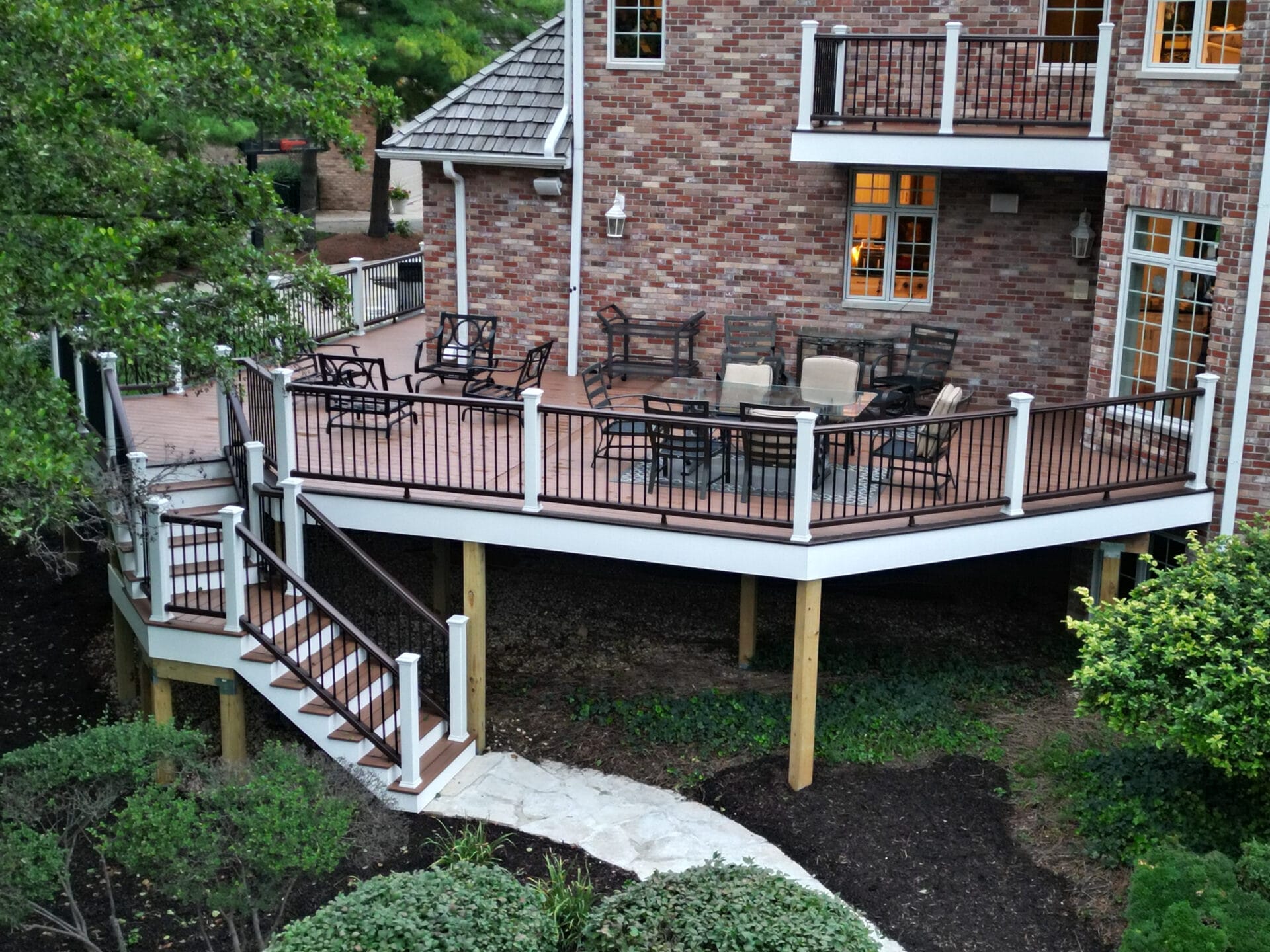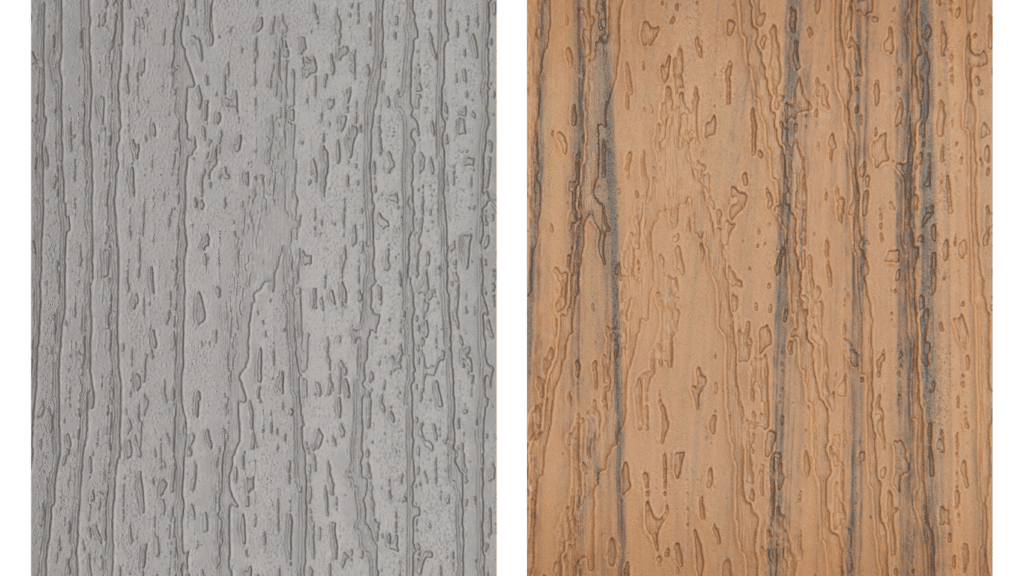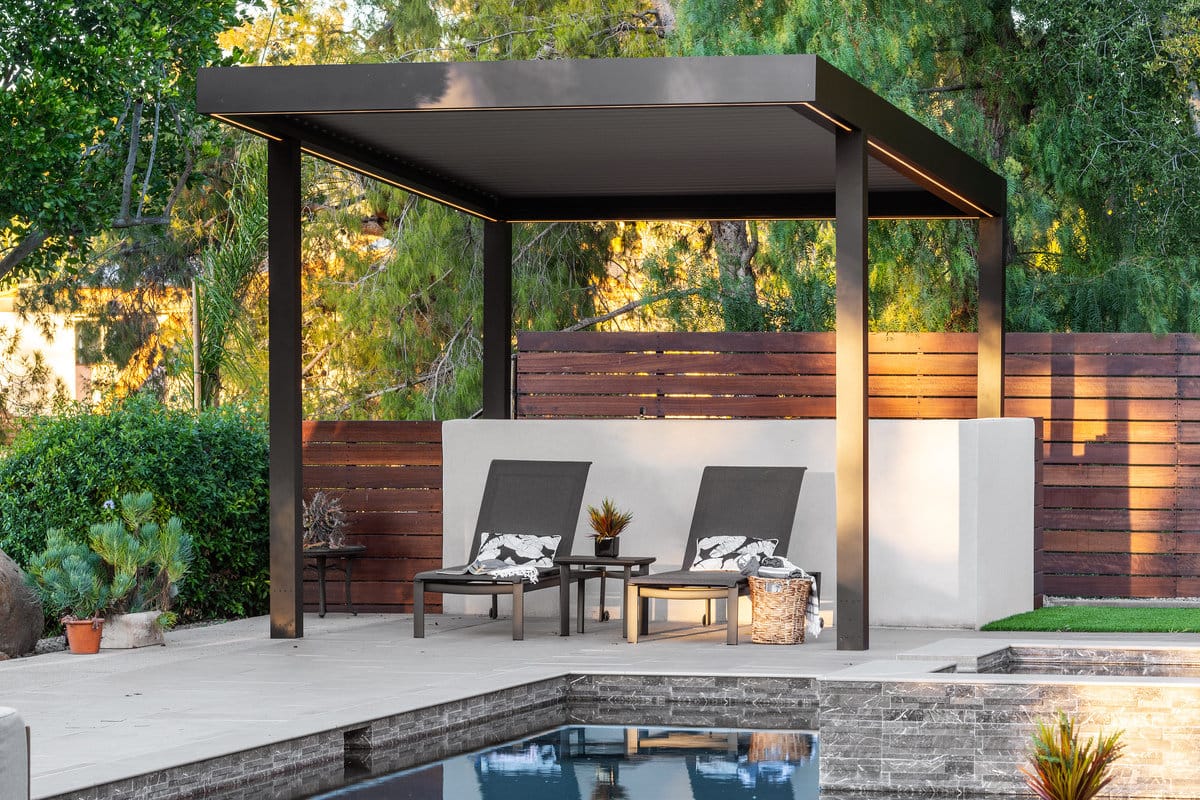
Adding a pergola to your outdoor space boosts comfort, style, and usability. These outdoor structures create inviting spots for relaxing, dining, or entertaining. With many options available, you need to understand what works best. Two popular choices are the modern louvered pergola and classic wooden design.
We’ll compare both structures to help you choose the right one for your yard. You’ll also discover inspiring ideas to enhance your outdoor space.
What Is a Louvered Pergola?
A louvered pergola is a modern twist on the classic design. It has adjustable louvers instead of fixed slats. These louvers move open or shut to control the sun and keep out rain. Most louvered models use motors for easy adjustment.
These aluminum pergola options usually come with tough powder coating. This coating resists rust and fading. Most systems include built-in drainage that channels rainwater away.
This protects your space while keeping air fresh. Their sleek, contemporary look works great with outdoor kitchens and entertainment areas.
What Is a Traditional Pergola?
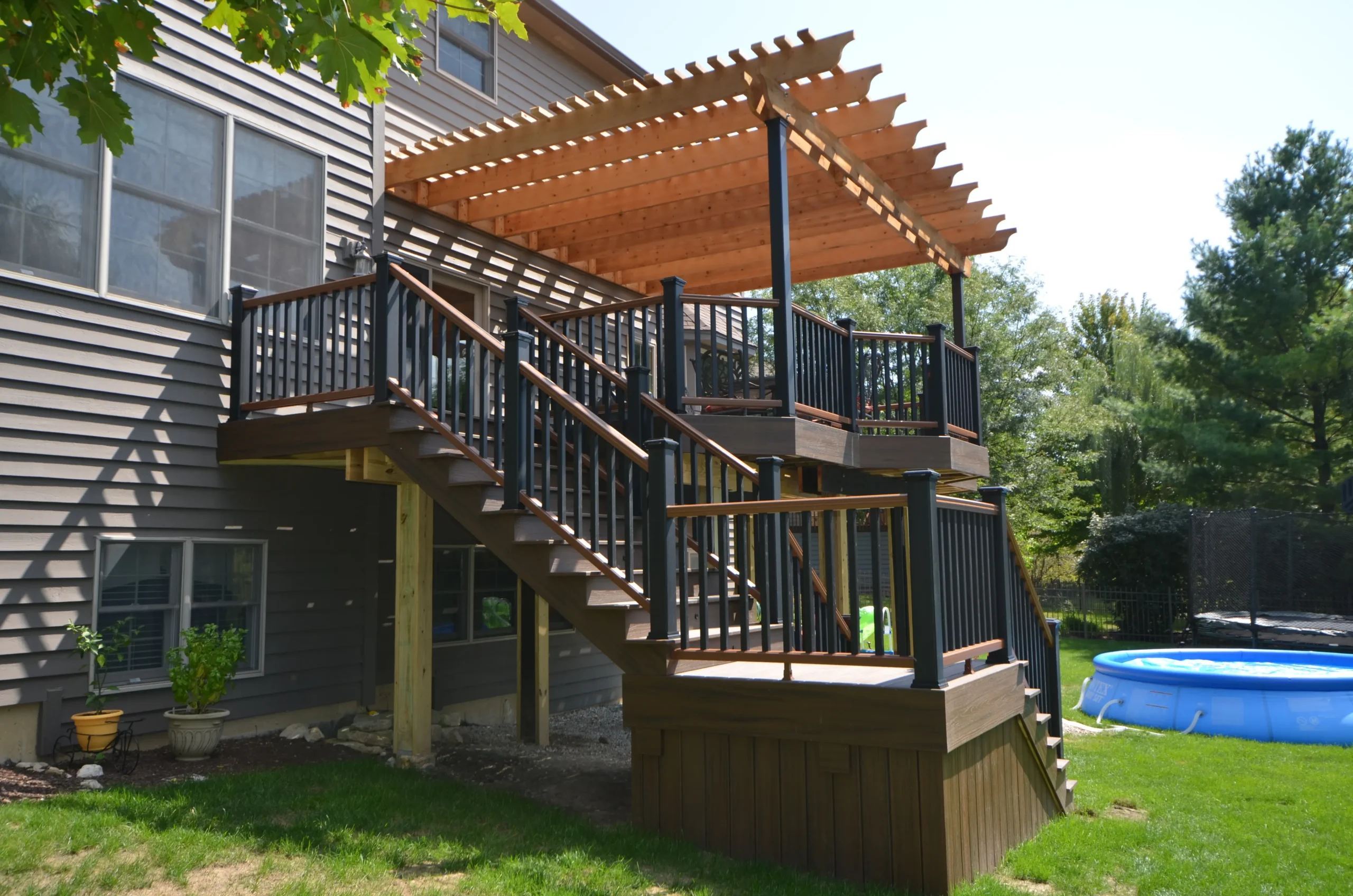
Traditional ones typically use wood or cedar. They have fixed slats across the top and they bring warm, natural beauty that fits many outdoor styles.
They lack adjustable louvers but you can increase comfort with add-ons. Try curtains, shade canopy, or outdoor heaters.
A wooden pergola supports climbing plants and hanging lights beautifully. It creates an attractive focal point in your yard. Many come predrilled for quick assembly.
You can install an outdoor pergola attached to house or as a freestanding structure. Their rustic appeal works great with gardens, patios, and poolside settings.
Material Comparison: Aluminum vs. Wood
Feature | Aluminum (Louvered) | Wood (Traditional) |
Adjustability | Yes (adjustable louvers) | No (fixed slats) |
Maintenance | Low (powder coating, rust-resistant) | Medium to high (needs sealing) |
Durability | High | Moderate |
Appearance | Modern, sleek | Natural, rustic |
Cost | Higher upfront | Lower upfront |
Add-ons | Integrated lighting, heaters, privacy screens | Hanging plants, drapes |
Drainage | Varies by model – Some come with built-in gutters, while others use smart drainage systems. | None by default |
These keep their color thanks to powder coating. They resist rust and last longer with minimal upkeep.
Benefits of a Louvered Pergola
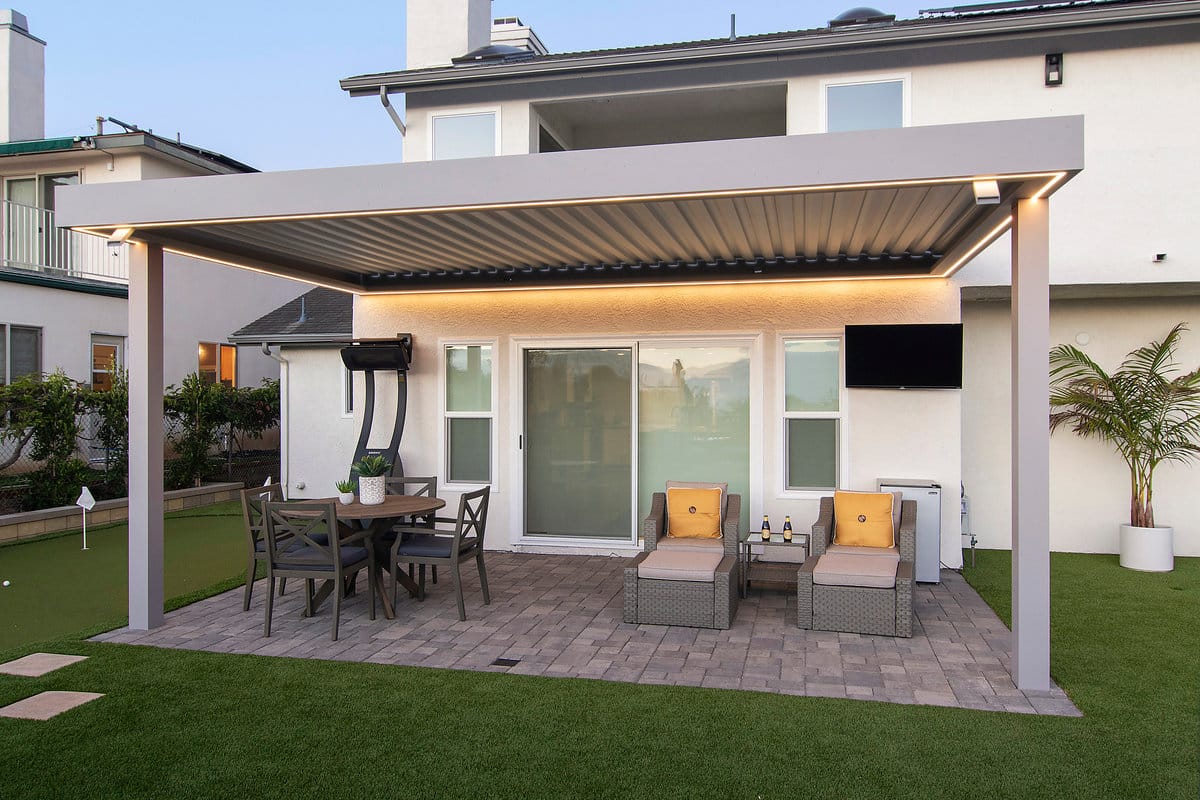
Flexible shade control: Adjustable louvers let you choose amount of shade you want.
Low maintenance: Powder coating on aluminum requires little care.
Weather ready: Weather protection features help manage rain and moisture.
Refined design: Enhances contemporary patios and outdoor kitchens.
Durable: Withstands extreme weather like hot summers and snowy winters.
Energy efficient: Adjustable louvers enhance airflow. This helps reduce cooling costs.
Benefits of a Traditional Pergola
Natural warmth: Wood pergola adds character and charm to any yard.
Highly customizable: Decorate with climbing plants, curtains, or string lights.
Budget friendly: Usually costs less upfront than aluminum options.
Easy assembly: Many manufacturers predrill their kits to speed up installation.
Timeless style: Fits rustic, cottage, or Mediterranean home designs.
Eco-conscious: Wood from sustainable sources is available.
Pergola Ideas for Every Backyard
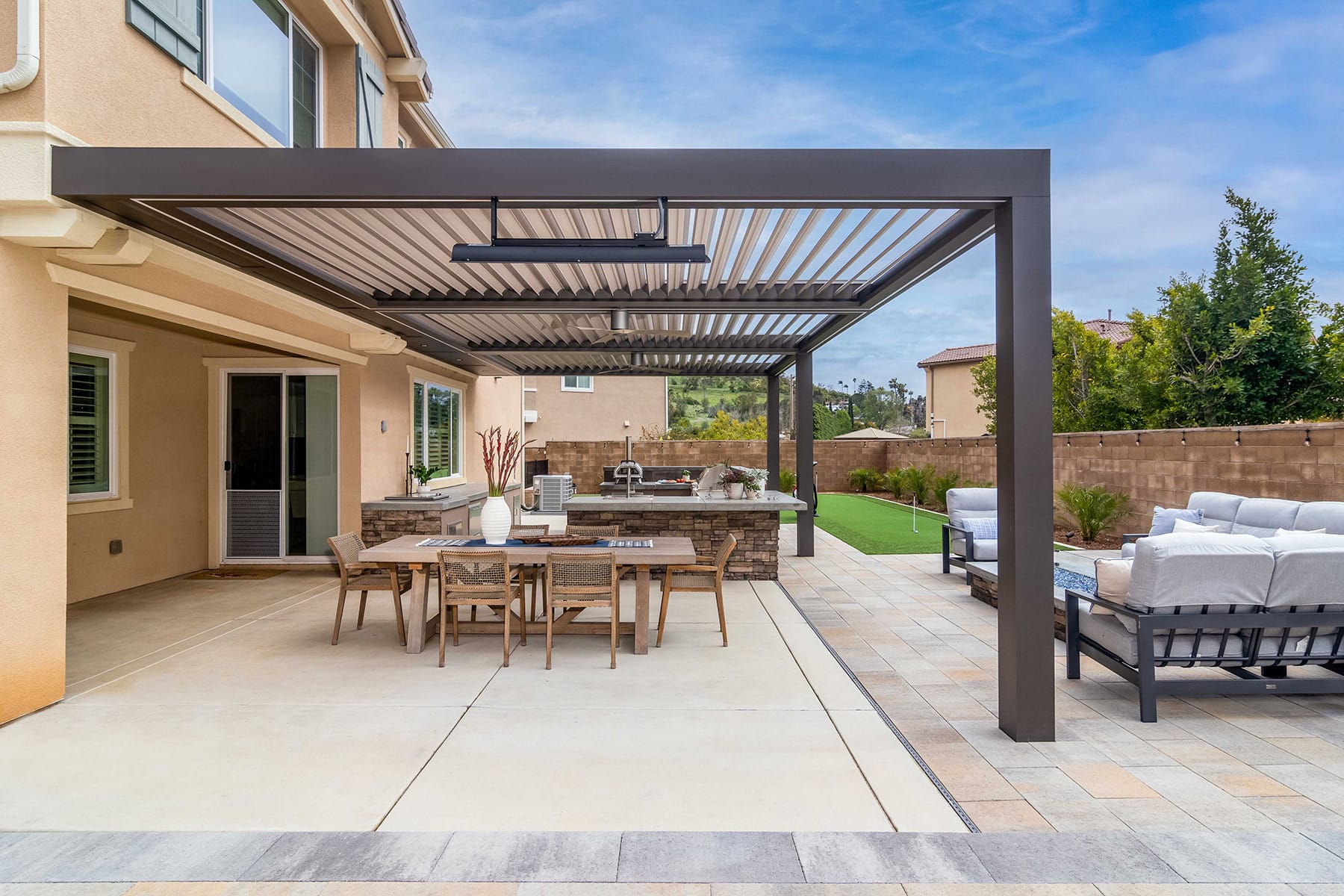
Explore these design ideas to enhance your outdoor space:
A pergola on deck for rooftop terraces or raised patios
Outdoor structures with shade canopy for dining areas
Cedar near pools with climbing plants and hanging lights
Louvered systems with smart controls and built-in lighting
Attached to house for seamless indoor-outdoor living
A design exists to suit every lifestyle. Use retractable cover or decorative drapes. These make your outdoor space comfortable in every season.
Which Pergola Is Right for You?
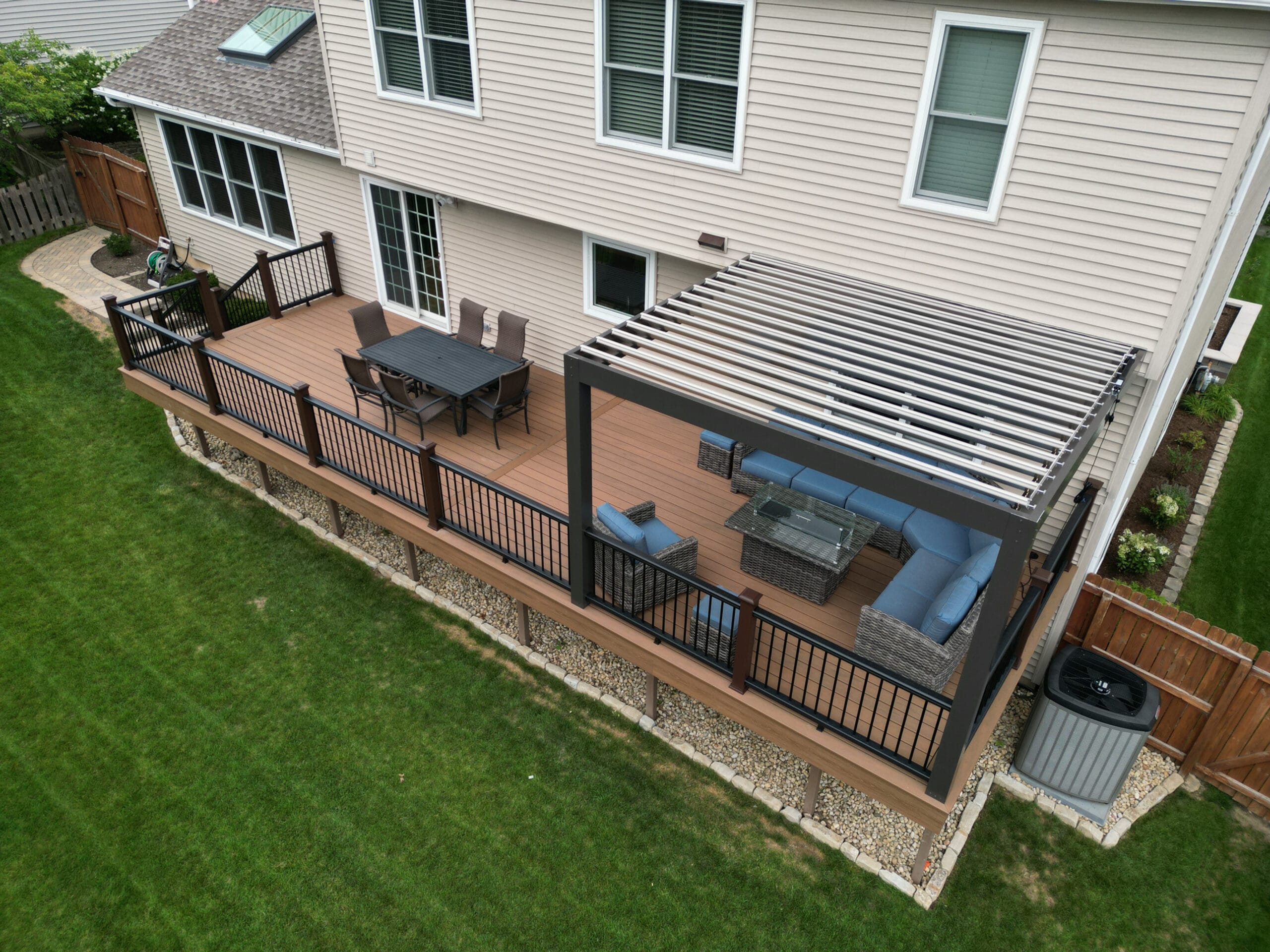
Choose based on what matters most to you:
Want low upkeep and modern features? Aluminum with adjustable louvers.
Prefer natural, timeless beauty? Wood or cedar.
Need reliable protection from outdoor elements? Louvered design with a drainage system.
Working within a budget? Traditional wood offers classic style at a budget-friendly cost.
You can enhance both types with extras. Try fans, LED lighting, heaters and privacy screens. These customize your outdoor retreat.
Traditional vs. Louvered
Pergolas offer great benefits for any outdoor space. Designers create them for your lifestyle. Whether you choose louvered or traditional, pergolas feature lasting appeal.
At Warner’s Decking, we build custom pergolas in Naperville, Plainfield, Downers Grove, St. Charles, IL and surrounding Chicago suburbs. We create smart louvered designs and classic wooden models. Our team brings your outdoor vision to life.
Begin your project today by contacting us for a free consultation. Get detailed information about our installation services.
Frequently Asked Questions
What is a pergola?
A pergola is an outdoor structure with vertical posts. These posts support a roof made of slats or solid panels. It provides some shade.
It helps define outdoor areas like dining areas or lounging spots. This improves both use and appearance.
What is a louvered pergola?
A louvered pergola features adjustable slats, or louvers, that open and close to control sunlight, airflow, and shade. Many models include motorized systems for effortless adjustment.
Some louvered pergolas drain rainwater through built-in channels when the slats close. This keeps the area underneath dry.
Are louvered pergolas waterproof?
Louvered pergolas typically don’t provide full waterproofing like solid roofs. However, closed louvers protect your space well from rain. Their integrated drainage system channels water away. This keeps the space below dry during light to moderate rainfall.
How do you build a pergola?
Building a pergola means planning, picking materials, and putting together the frame. You need posts and beams for the structure.
First, set the posts firmly in place. Then secure the rafters or slats to the posts. You can add features like pergola cover, lighting, or adjustable louvers for extra functionality.
DIY is possible. Hiring a professional helps make sure your pergola meets local building codes. Professionals also create durable, safe structures.
